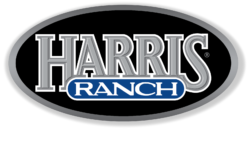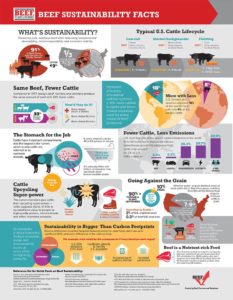Harris Ranch Beef: Stewardship of Land & Livestock
The land is not just where we raise our livestock, it’s also where we raise our families. Harris Ranch Beef and our ranching partners have a personal stake in the quality of the environment and are continually looking for ways to improve it. We are committed to taking care of the wellbeing of our livestock while maintaining our natural resources in the process. It’s not just about providing wholesome beef to our community today, but it’s about ensuring the land will continue to provide for future generations to come.
CATTLE AND THE ENVIRONMENT
Raising cattle and environmental stewardship go hand in hand. Most do not know that cattle serve a valuable role in our ecosystem. In California alone, more than 38 million acres of land is considered marginal land that is unsuitable for farming crops. While this land may not be used to grow fruits and vegetables, cattle are able to graze and convert the native grasses inedible for human consumption into a nutrient dense food. Grazing livestock not only helps reduce the risk of wildfires, it also allows us to double the area of land that can be used for food production. Our ranching partners make sure to avoid overgrazing and actively contribute to rangeland enhancement, protect watersheds, and help build healthy wildlife ecosystems.
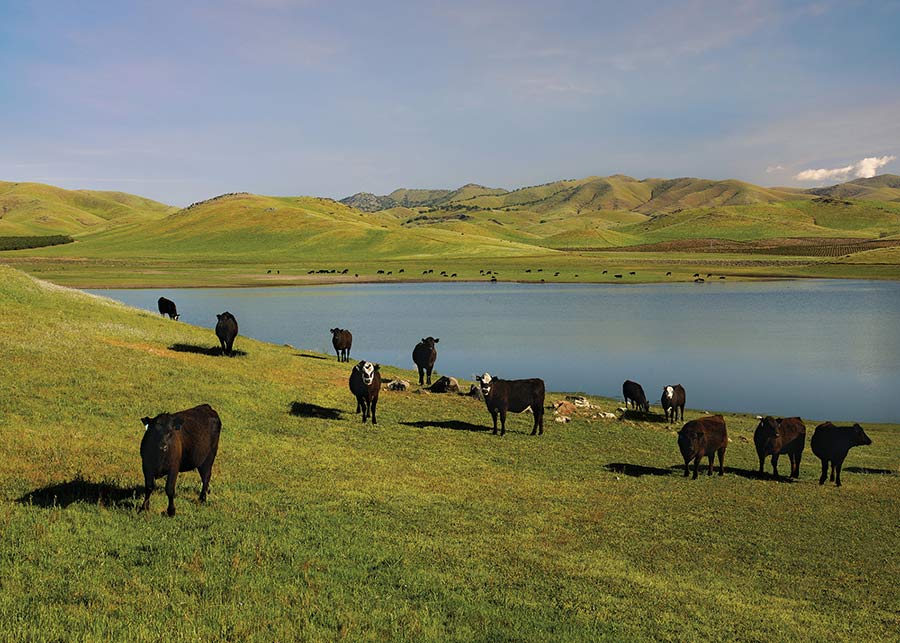
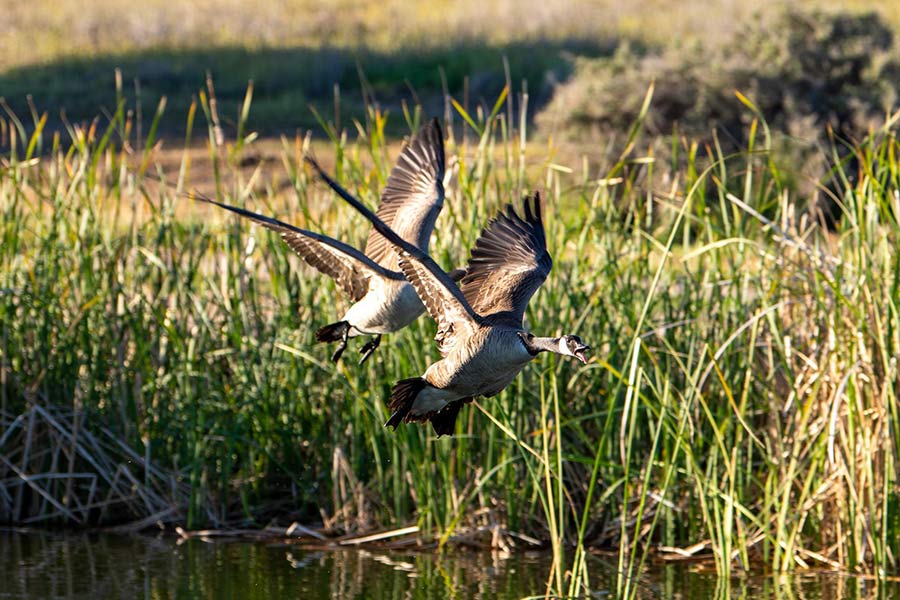
FEEDLOT EFFICIENCIES
According to the Environmental Protection Agency, livestock in the United States generates less than 2.4% of all greenhouse gases. Harris Ranch is one of the top agriculture pioneers in the country, continuing to improve beef production efficiencies and, in turn, reducing the environmental impact of beef production. Finishing cattle on grain in our feedlot not only creates an exceptionally flavorful beef product, but also allows us to reduce our overall carbon footprint. Research shows that each pound of grain-finished beef requires 45% less land, 76% less water, 49% less feed, 51% less manure and 41% fewer carbon emissions than exclusively grass-finished beef.
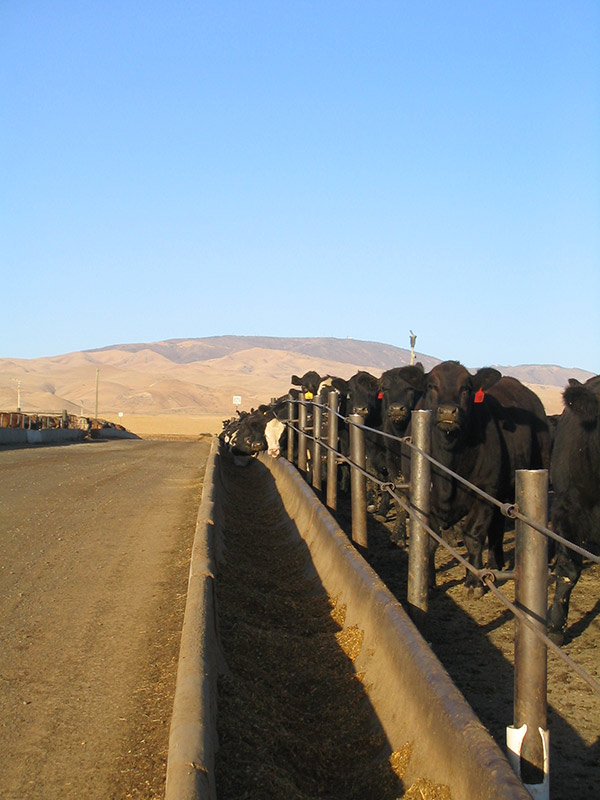
Cattle ranchers and the beef industry are driven to improve our sustainable practices. Research from Dr. Frank Mitloehner, UC Davis Professor and Air Quality Extension Specialist, shows that in 1970, it took 140 million head of cattle to produce 24 million tons of beef, while only 90 million head of cattle were needed to produce the same amount of beef in 2015. That’s 36% more efficient! Thanks to further improvements in feed quality and digestibility, the beef industry has decreased its carbon footprint by 18% over the past 30 years. We’re feeding more families than we ever have in history, and doing so with a lower environmental footprint.
TURNING WASTE INTO AN ESSENTIAL RESOURCE
Harris Ranch Feeding Company operates as a no-discharge facility, uniquely designed to capture all waste and rainwater within the feedlot. The captured water is drained into a settling basin before being transferred to evaporative ponds to reenter the ecosystem naturally. But water isn’t the only thing we capture and recycle. All cattle waste generated in the feedlot is gathered to supply high quality organic compost to neighboring farms – as much as 150,000 tons of manure and 100,000 tons of compost each year! This would-be waste product is able to be repurposed into fertilizer to grow delicious vegetables, fruits, and nuts all across California.
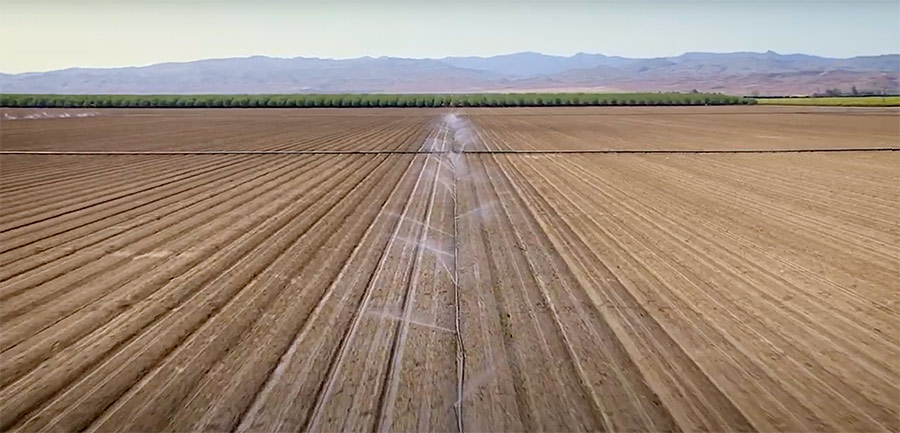
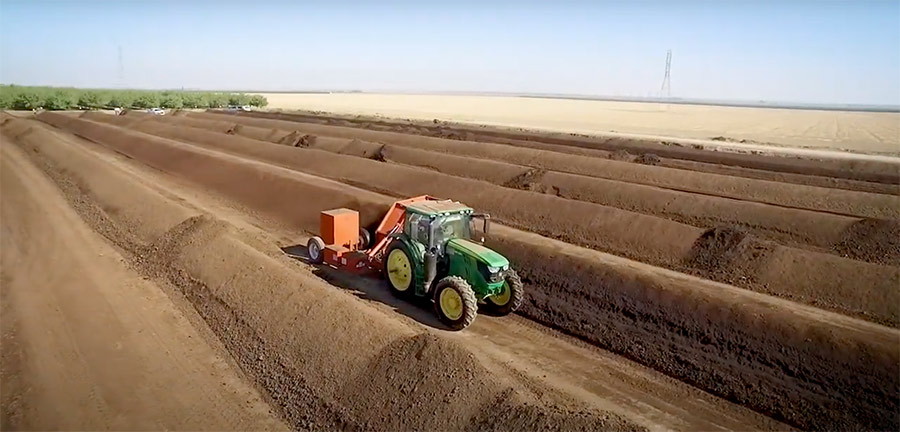
Our commitment to sustainable agriculture is reflected in our best management practices, which value and respect our natural resources. Dr. Dave Daley, CSU Chico Associate Dean of Agriculture notes, “A lot of people think that a big operation cannot be sustainable, there’s nothing further from the truth. Sustainability is not about whether you’re a small producer or large producer, it’s about your practices.” Partnering with progressive ranchers, protecting and preserving our water supply, and composting waste materials are just a few ways Harris Ranch Beef demonstrates our commitment to environmental sustainability.
YOUR ROLE IN SUSTAINABILITY
So how can you play a part in sustainability? Simple – waste less. About a third of all food produced in the world for human consumption is wasted, and an estimated $2500 worth of food is wasted each year in the average American household! While beef is one of the least-wasted foods according to the United States Department of Agriculture at about 20% spoiled or uneaten, we still have plenty of room for improvement. Thoughtful meal planning, finding ways to utilize leftovers and making sure to properly store and prepare your food can be helpful when trying to waste less in your own home.
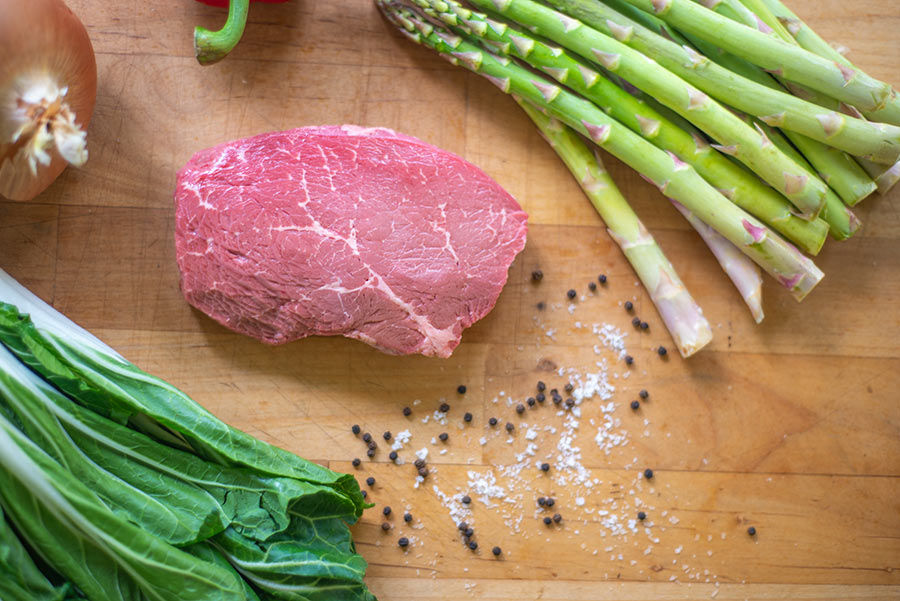
On Earth Day and every day, we are grateful for our precious natural resources and for our ranching partners’ shared dedication to maintaining them. Thank you for trusting us to be stewards of the land and livestock, for doing your part to waste less, and for choosing delicious, wholesome Harris Ranch Beef to fuel your family.
Happy Earth Day from our Harris Ranch Beef family to yours!
To learn more about our sustainable practices, visit: https://youtu.be/asv0QtzleH8
